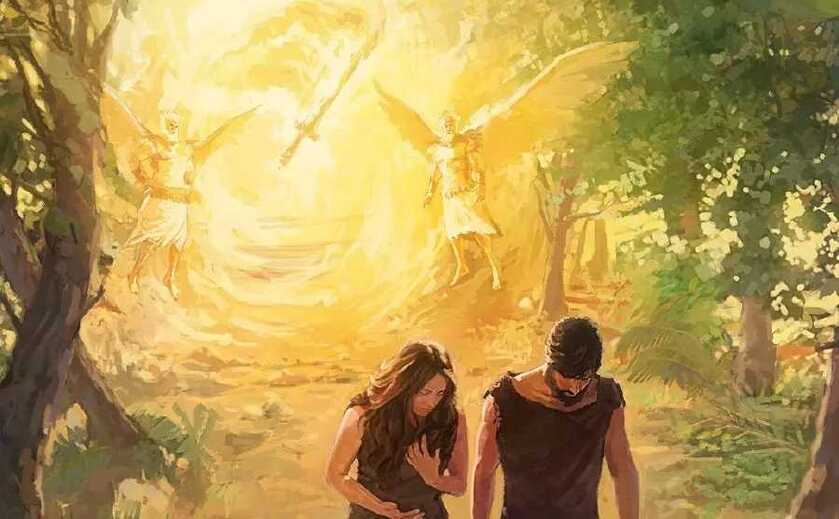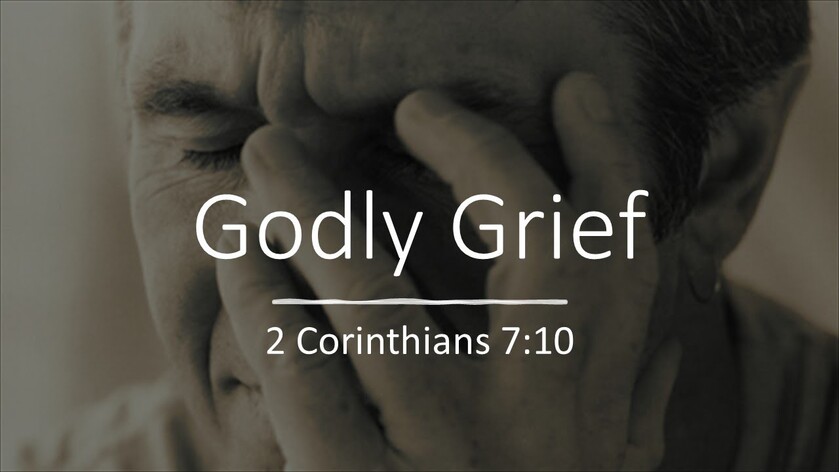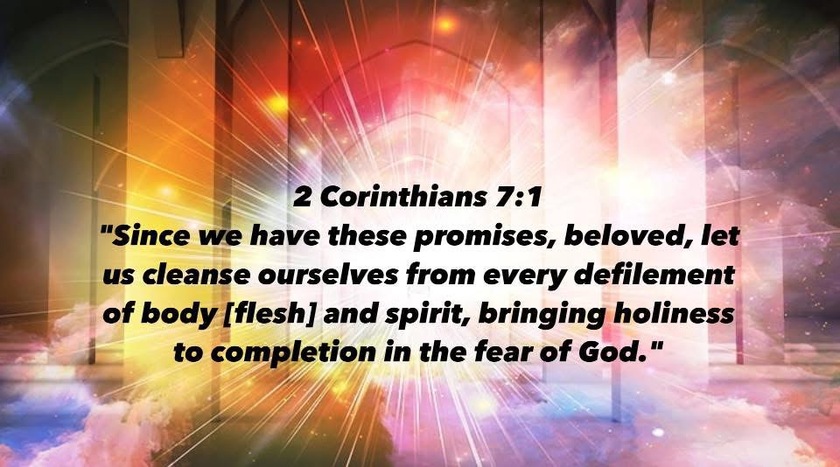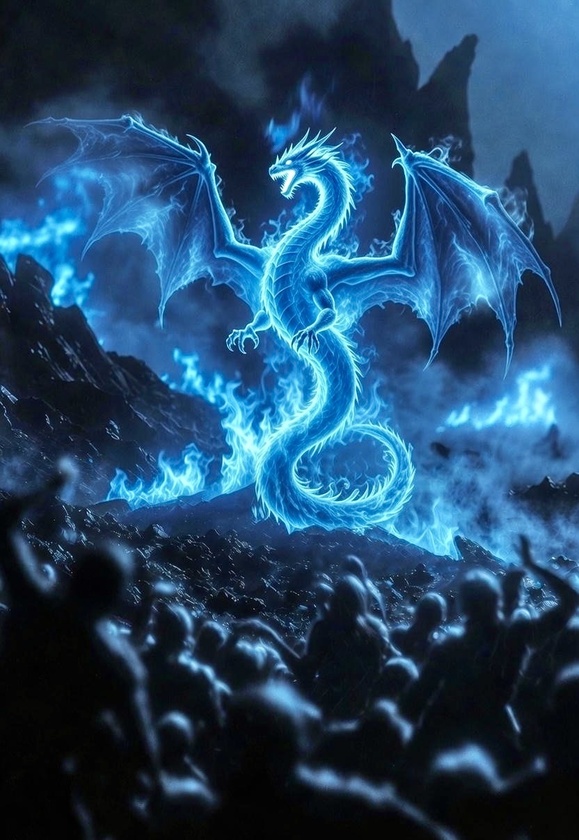Mercy in Mortality: God’s Grace in the Curse of Eden
Genesis 3:22-24
Then the Lord God said, "Behold, the man has become like one of us in knowing good and evil. Now, lest he reach out his hand and take also of the tree of life and eat, and live forever—" therefore the Lord God sent him out from the garden of Eden to work the ground from which he was taken. He drove out the man, and at the east of the garden of Eden he placed the cherubim and a flaming sword that turned every way to guard the way to the tree of life.
Have you ever read about the fall of mankind, especially this particular passage, and realized that it was actually an act of mercy, and grace? But not only that, it was a type of predestination in that it secured for mankind the opportunity for redemption in Christ? God in his wisdom protects His creation from this irreversible fate by exposing humanity to mortality under the curse. This allows for the hope of future salvation and entry into the true paradise. And tied to this is the first animal sacrifice which foreshadowed Christ’s atoning work.
Genesis 3:21
"The Lord God made garments of skin for Adam and his wife and clothed them."
It's all God’s compassionate response to the Fall. After gaining experiential knowledge of evil through disobedience, humanity’s access to eternal life is blocked to prevent perpetual damnation in sin. And what an amazing blessing then is death (mortality). Because immortality in that fallen condition would mean unending internal corruption, unlike God’s perfect knowledge of evil. This would have meant eternal selfishness, violence, and alienation, far worse than any physical death. And as already stated, mortality, then, opens the door to redemption. Instead, death's mortality is a "blessing" that allows for the gospel story, where Christ restores paradise.
In effect, God pronounces hope before the fullness of the curses, revealing His grace even in His wrath. And look how pathetic mankind was (and is still). The joke of trying to hide from God. Seriously? But aren't we all doing this even now? How many times have you willingly acted in ways you damn well know does NOT please God, but you did it just the same? And Adam's lame attempt at laying the blame on Eve, his lie of self-justification. But the ultimate take away should be that we don't stay permanently focused on humanities depravity, but instead we confess that every human experience involves sin, AND GRACE, and salvation’s possibility.
Before going on, we should pause for a moment and understand the wisdom behind God's wrath and the curses. Sin enters in Adam's shame and spiritual death. Adam and Eve’s "knowledge of good and evil", having taken that foridden fruit (information they couldn't handle), is experiential and corrupted, unlike God’s perfect knowledge. And this then connects to God’s merciful provision in verse 21.
The overall theme is that sin’s curse brings mortality as a boundary against perpetual evil, opening the door to the history of salvation in Jesus Christ. So, though it may seem to be a very harsh judgement or even an insult to his creation since God seemingly sets them up right from the start with this tree and admonition, truth is it's not really the tree or the fruit that is evil, it's the state of mankind that contributes to his spiritual death. It just wasn't possible for them to take that information and make good from it in the same way that God might.
So, mortality it seems, in particular, connects to verses 22-24 by averting the horror of an endless sinful existence; instead, it allows for the hope of redemption and resurrection life. Though some may say that a future lifetime of toil and hardship might not be preferable to the immortal death of their soul. If they feel this way they are greatly mistaken. Simply put, the eternal death of their soul means eternal darkness (Matthew 8:12, 22:13, 25:30).
Absolute death, no sight, no hearing, no information other than the realization that you are completely cut off from God and everything else. It's not a place you want to be, or visit. It's not going to be a demonic resort and nightclub with golf courses and gin joints for the damned. It's described as "outer darkness", where the "worm does not die and the fire is not quenched" (Mark 9:48, echoing Isaiah 66:24). There's nothing there. You're completely alone in your nothingness. For all eternity. An atheist's dream I suppose. This isn’t annihilation but conscious, eternal exile. Making physical death a merciful gateway to potential redemption rather than an endpoint of damnation.
So, without this blessing of mortal death, humanity would face unrelenting corruption without any escape. It's not an ultimate defeat, since it paves the way for Christ’s victory over sin.
This all began with a universal war between good and evil, with Adam and Eve’s disobedience shattering paradise. With a cosmic rebellion among the fallen angels that introduced temptation resulting in sin and death but also showcased God’s sovereign mercy through promises of redemption. It's almost as if God created the heavens and the earth and mankind in His image as a response to the rebellion of his angelic creatures. But this is unlikely. The angelic fall likely occurred after mankinds creation (possibly during or just after the creation week, before day 7, as they witnessed and praised God’s work in Job 38:4-7) but before the Garden events, setting a cosmic stage where God’s redemptive drama unfolds to the amazement of angels (1 Peter 1:12; Ephesians 3:10). So, He doesn’t "need" to respond by creating humans, but uses the fall to demonstrate His grace, justice, and ultimate victory over evil.
Some have suggested a "Angelic Conflict Doctrine", which tries to explain a view where earth was initially for the angels, but Satan’s rebellion led to chaos, with human creation coming in as a part of God’s restorative plan. Here's what we know, the fall in Eden doesn’t occur in isolation but against the backdrop of this prior cosmic rebellion. Scripture implies Satan’s fall (as the serpent in Genesis 3:1-15) predates humanity’s temptation, drawing from passages like Isaiah 14:12-15 (the fall of the "morning star" ), and Ezekiel 28:12-19 (a lament over the king of Tyre, often seen as typifying Satan’s prideful rebellion), and Revelation 12:7-9 (the war in heaven, where the dragon and his angels are cast out).
God’s curses, turns out therefore, aren’t capricious but purposeful, introducing mortality as a safeguard against eternal corruption while embedding hope for redemption, which in turn highlights how His wrath is subservient to His grace. The tree and fruit in and of themselves aren’t evil; they represent a boundary of obedience that humanity, in its finite state, couldn’t cross without disastrous consequences. This corrupted, experiential knowledge of evil (unlike God’s holy omniscience) plunges Adam and Eve into shame and spiritual death, yet God immediately responds with provision and protection by expelling them and subjecting them to a lifetime of toil, pain, and suffering.
Crazy but it's profound. Mortality, then, isn’t defeat or unkindness, but a divine reset, limiting sin’s unchecked reign and opening the path to Christ’s victory, where death is swallowed up in resurrection life.
1 Corinthians 15:54
"When the perishable puts on the imperishable, and the mortal puts on immortality, then shall come to pass the saying that is written:"
"Death is swallowed up in victory."
So, it's a merciful exile, sparing humanity from immortality in brokenness. Death, interrupts the cycle of sin, creating space for grace and the ultimate reversal through Jesus, the true "tree of life" on the cross.
In this view, death becomes an enemy introduced by sin (as 1 Corinthians 15:26 calls it the "last enemy" ), yet sovereignly wielded by God to limit evil’s grasp, preserving the possibility of redemption and resurrection.
Now we might be tempted then to view Death as a form or work of the Spirit. But scripture affirms that "God is light, and in him is no darkness at all" (1 John 1:5), "God is love" (1 John 4:8, 16), and He is the source of life (John 1:4; 5:26). These attributes reflect His holiness, his living relational essence, and creative power. The Holy Spirit, as the third person of the Trinity, embodies and imparts these qualities: He illuminates truth (John 16:13), pours out God’s love into believers’ hearts (Romans 5:5), and gives them spiritual life (John 6:63; 2 Corinthians 3:6). The Spirit is described as a comforter, advocate, and empowerer (John 14:26; Acts 1:8), regenerating the dead in sin (Titus 3:5) and raising the mortal body to life (Romans 8:11). In essence, the Spirit is life-affirming and restorative, countering darkness, hatred, and death rather than embodying them.
So what exactly is Death?
Well, we've already depicted death as a form of mercy and an enemy, particularly in theological interpretations of Genesis 3, where mortality emerges not as sheer cruelty but as God’s protective intervention against an eternity of unrelieved sin and torment.
In art, in storytelling, and poetry, death is often a metaphor, or philosophical force. Death is a summoner calling the protagonist to judgment, urging moral reflection. A gentle escort for the soul into eternity, blending inevitability with kindness. In fantasy, like J.K. Rowling’s Harry Potter series, death is the "next great adventure," a merciful transition for the prepared.
Mythological tales, like the Greek Hades or Norse Hel, frame death as a realm rather than a figure. The Western culture's Grim Reaper is a skeletal figure with a scythe and black robe, which evolved from medieval plague imagery, symbolizing the harvest-like reaping of souls, sometimes benevolent in guiding the dying. Death has been portrayed as everything from a skeletal queen, overseeing the underworld, to a just judge on a buffalo, a collector of souls in a creaky cart, and a creature with a venomous tongue licking the dead. In all these depictions death is seen as an enemy in its intrusion, yet a merciful ally in God’s redemptive plan.
At any rate, Death has played a role in humanities redemption and reeducation since the beginning and continues right up to the "Seveth Seal" and the end of all days.
The phrase "the seventh seal" originates from the Book of Revelation in the New Testament, specifically Revelation 5, 6:1–17, and 8:1–6. It's the set up for the final judgment, introducing a profound silence in heaven for "about half an hour," followed by seven angels preparing to sound trumpets heralding further judgments.
So Death is an inevitable companion, grim yet integral to life’s meaning. A merciful boundary. Maybe a monster but pragmatic. Probably deeply influenced by one's own perspective going into it. Certainly it serves as a driving force, without it, life might dissolve into triviality. Depending on one’s cultural, religious, or experiential perspective, death can lead to defensive worldviews or, conversely, profound gratitude and meaning.
In light of the gospel, foreshadowed from the very beginning in Genesis, Christians are called to view death not as a final defeat or ultimate terror, but as a conquered enemy and a temporary passage to eternal life. Christians, therefore, approach death with a sober realism, acknowledging its pain, but without despair, knowing Jesus’ resurrection guarantees their own (1 Corinthians 15:20-23; Hebrews 2:14-15).
And so all this should help us understand that death shapes our daily lives just as God intended. Christians should live with eternity in mind, pursuing holiness and mission, unafraid of death’s shadow (Psalm 23:4; Hebrews 2:15). Do not grieve as those without hope. What began as a curse in Eden ends in resurrection victory. The monstrous curse of death loses its sting in light of the gospel. Pragmatic, and inevitable, but ultimately swallowed up in life everlasting.
Prayer:
Heavenly Father, thank You for Your sovereign mercy in the midst of judgment, turning the curse of death into a gateway of hope through Christ. Help us embrace mortality as Your protective grace, living with eternity in view and unafraid of the shadow. May we find joy in Your redemptive plan, from Eden’s exile to resurrection victory.
In Jesus’ Holy name, Amen.




















